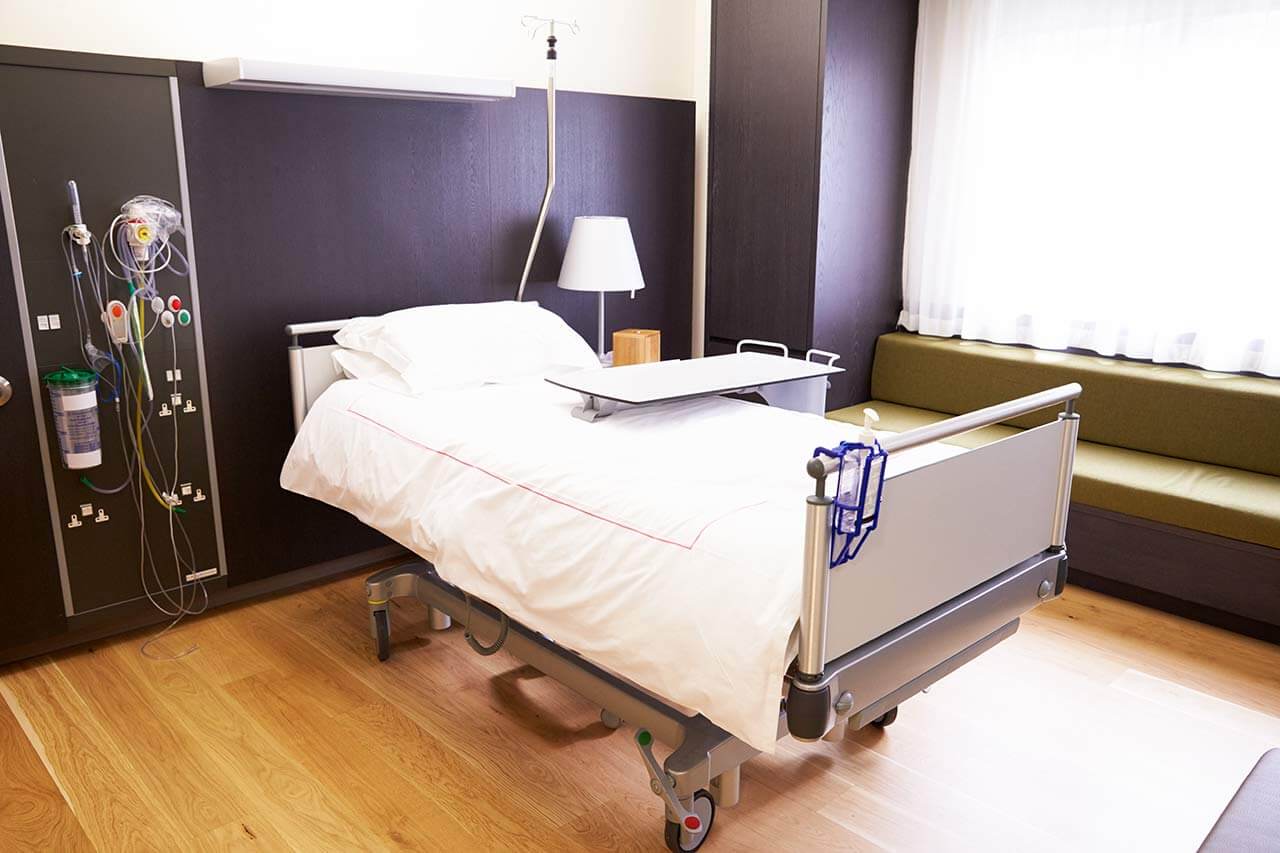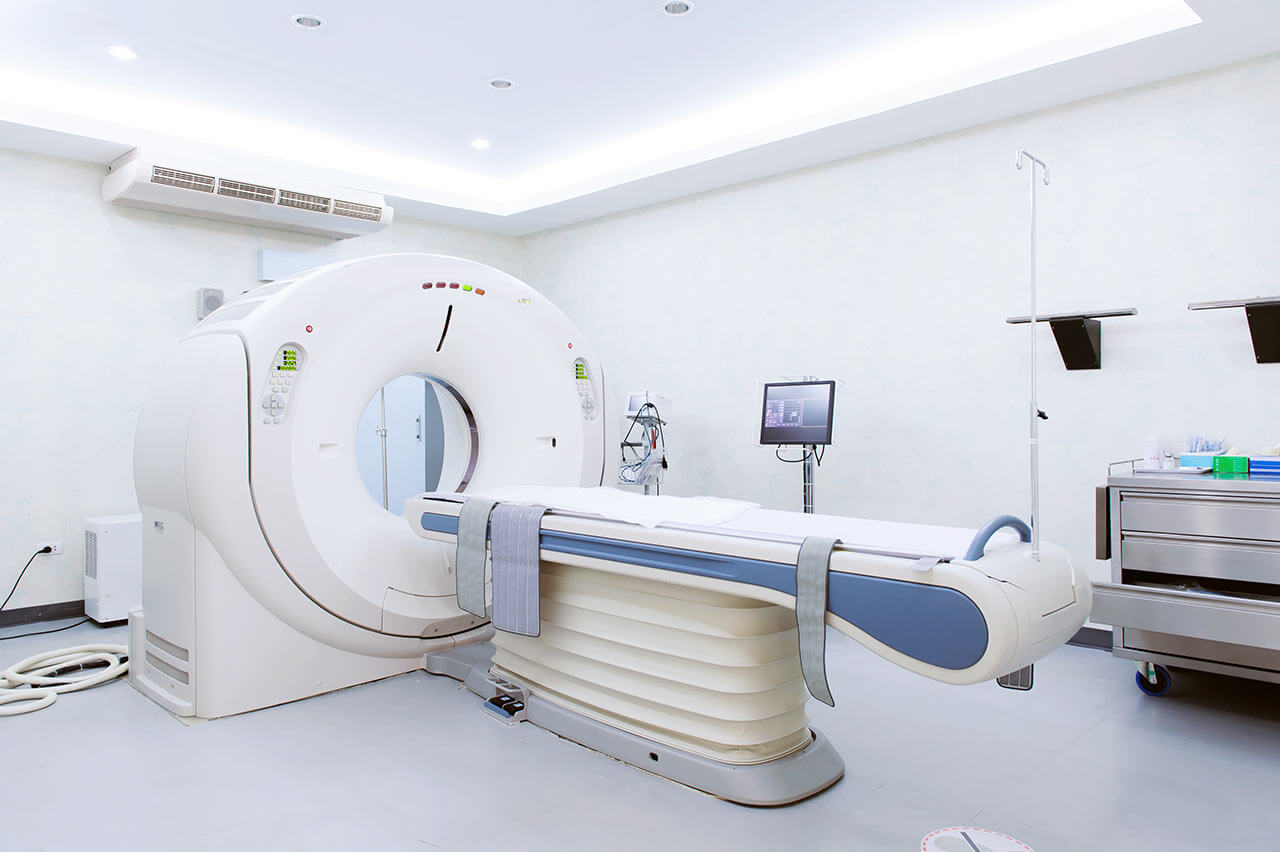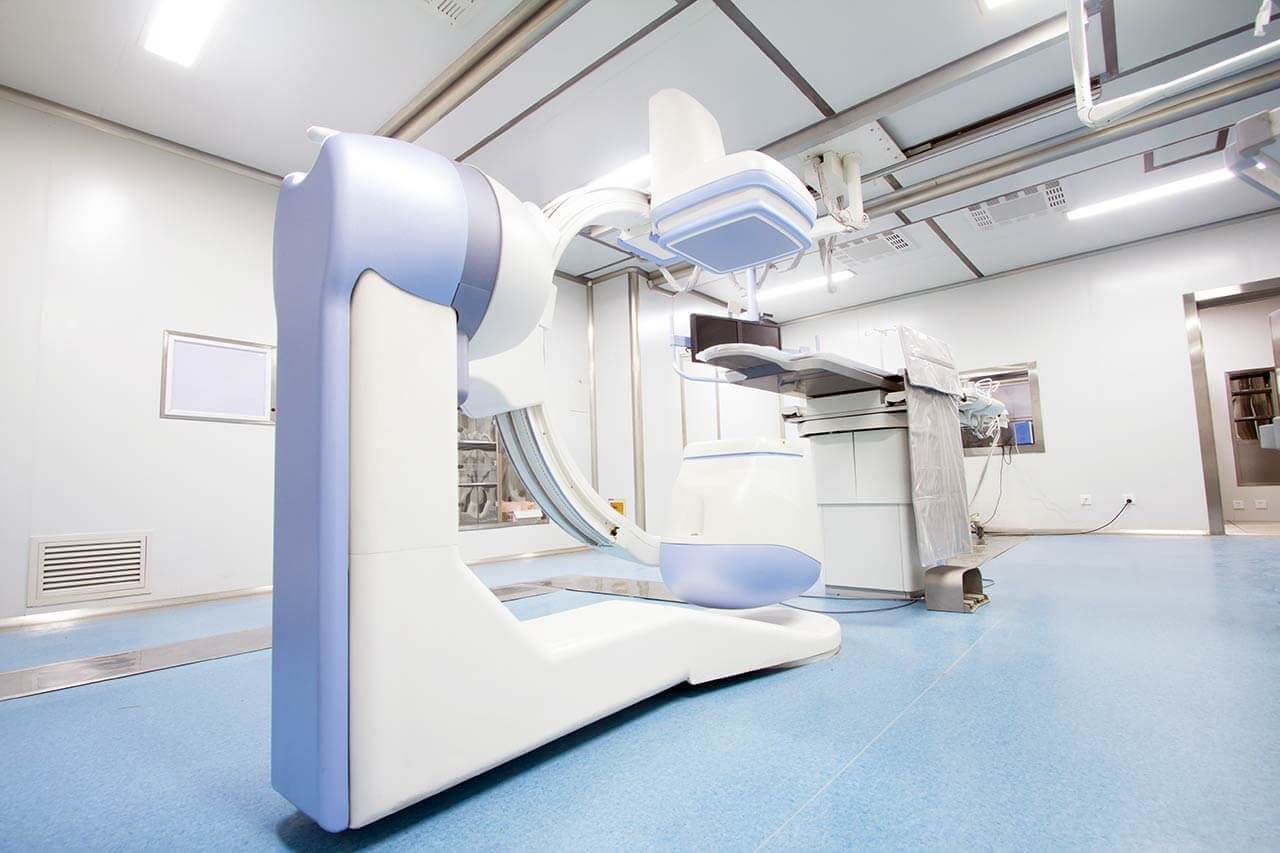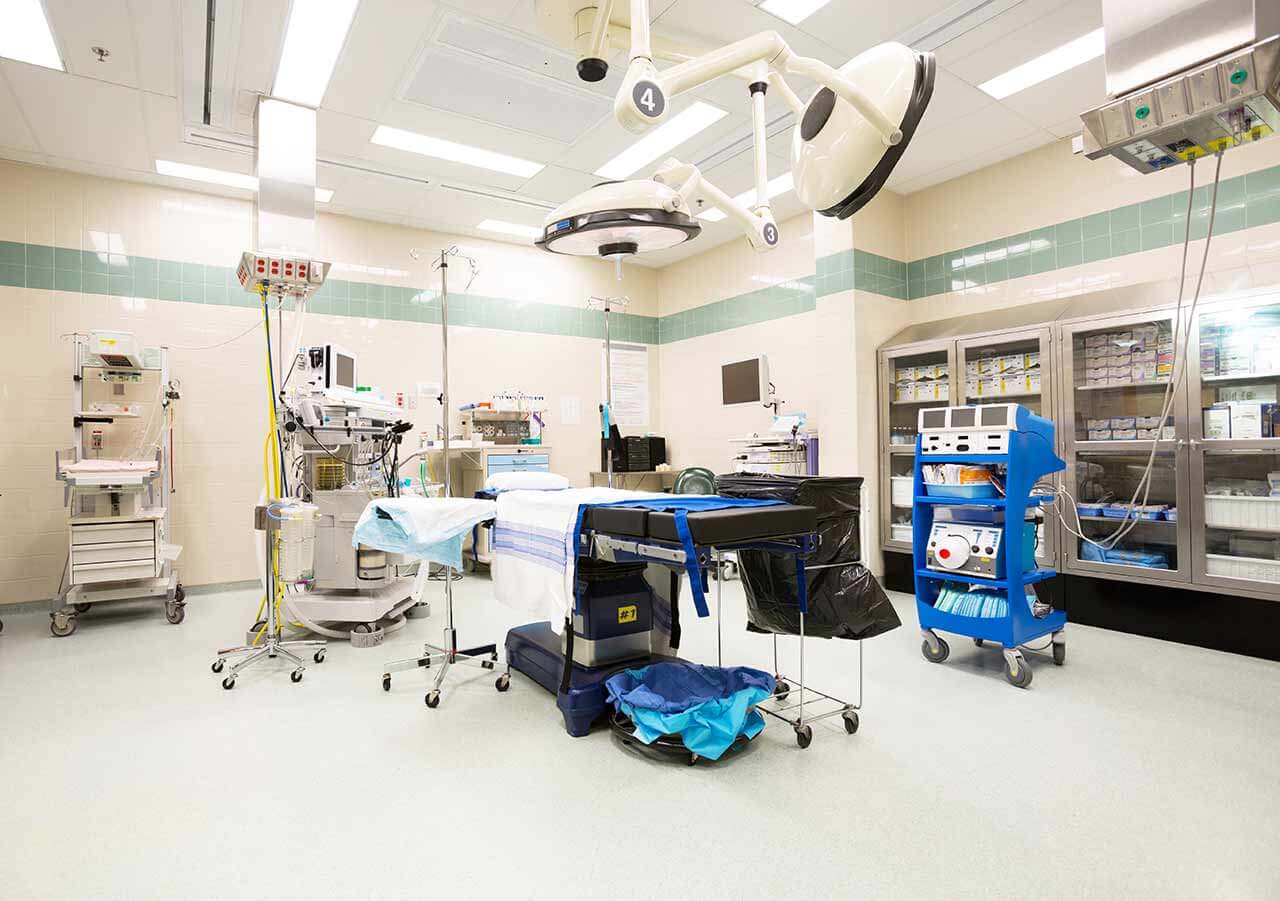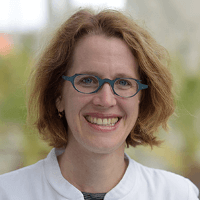
The program includes:
- Initial presentation in the clinic
- clinical history taking
- review of medical records
- physical examination
- ophthalmological examination:
- slit lamp examination
- pupil examination
- ocular motility examination
- ophthalmoscopy
- visometry (without correction and with correction)
- nursing services
- services of chief physician and all leading experts
- explanation of individual treatment plan
Service
You may also book:
 BookingHealth Price from:
BookingHealth Price from:
About the department
According to the Focus magazine, the Department of Adult and Pediatric Ophthalmology at the Charite University Hospital Berlin is one of the best medical facilities in Germany in its area of specialization!
It offers a full range of high-precision diagnostics and effective treatment of eye diseases for patients of all ages. The department has the status of one of the largest and most advanced Eye Centers in Germany. The department's medical team specializes in the treatment of cataracts, glaucoma, corneal diseases, inflammatory ophthalmological diseases, eye tumors, strabismus, age-related macular degeneration, and eye pathologies in children. The doctors of the medical facility have many years of experience in the medical care of patients with rare eye diseases, including tumors, infectious lesions, and hereditary pathologies. The department also serves patients with complex diseases, which can be treated only in leading Eye Centers with specially trained medical staff and high-tech equipment. The department includes modern and highly specialized centers: the Refractive Surgery Center, the IVOM Therapy Center, the Corneal Center, which performs more than 250 corneal transplants annually, the Uveitis Center, and others. In cooperation with the Proton Therapy Center BerlinProtonen, the department's specialists perform proton therapy for the treatment of choroidal melanoma – there are only a few clinics in Germany where this treatment is available. Pediatric ophthalmology focuses on the treatment of amblyopia, cataracts, nasolacrimal duct obstruction, and strabismus. The department has long held a leading position among the best Ophthalmology Clinics in the European medical arena. The department is headed by Prof. Dr. med. Antonia Joussen.
The department is one of the few medical centers in Europe where ophthalmologists specialize in the treatment of choroidal melanoma. This rare malignancy is highly aggressive and requires immediate medical attention. Time is of the essence: once the diagnosis is confirmed, treatment must begin as soon as possible to prevent the development of secondary tumors and protect not only the patient's vision, but also his or her life. Two main methods are used to treat choroidal melanoma: radical surgery to remove the affected eye (enucleation) and radiation therapy. In some cases, physicians may perform an organ preservation tumor resection, but this treatment is suitable for a limited number of patients with appropriate clinical indications. Small tumors may be destroyed with cryotherapy or thermotherapy. In cooperation with the advanced Proton Therapy Center BerlinProtonen, the department's ophthalmologists offer treatment with proton therapy that is the most sparing and highly effective way to combat choroidal melanoma. In contrast to traditional photon radiation therapy, proton beams are used to target the tumor with exceptional precision and minimal damage to healthy tissue. The course of treatment is individually developed by experienced specialists at the BerlinProtonen Center. The preparatory phase includes all the necessary diagnostic examinations and the preparation of a special mask to fix the patient's head. The procedure is comfortable and painless. The course of treatment usually consists of 4 radiation sessions within one week.
In 2019, the IVOM Center was opened on the basis of the department, specializing in the treatment of eye diseases using intravitreal injections – the administration of drugs directly into the eye cavity. This treatment is performed on an outpatient basis without the need for hospitalization. IVOM therapy is effective for age-related macular degeneration, diabetic maculopathy, maculopathy due to retinal vein occlusion or Irvine-Gass syndrome, macular edema in uveitis, and maculopathy in rare retinal diseases.
The department is proud of its modern outpatient Eye Surgery Section, which was opened in 1998. This section is ISO 9001:2008 certified, which guarantees the highest quality of all surgical procedures performed here. Patients with cataracts, eyelid diseases, and refractive errors are mainly treated here. Operations are performed under drip, peribulbar, and intubation anesthesia using microincision techniques – the incision size does not exceed 2.2 mm. Patients with cataracts have access to a wide range of intraocular lenses, ranging from monofocal to toric, multifocal, and trifocal. The section has advanced diagnostic equipment to select the optimal intraocular lens for each patient.
The healthcare facility has a highly skilled team of pediatric ophthalmologists who manage the eye health of young patients, including premature babies. They treat children and adolescents with amblyopia (visual acuity reduction), cataracts, glaucoma, nasolacrimal duct obstruction, and strabismus. An important area of work is the treatment of retinopathy of prematurity. With the timely application of cryocoagulation or laser coagulation, serious visual impairment can be prevented in most cases. Since 1991, the department has had an effective screening program for retinopathy of prematurity, allowing specialists to diagnose ophthalmopathology promptly and provide qualified medical care.
The range of medical services provided by the department includes the following:
- Diagnostics and treatment of eye tumors
- Diagnostics and treatment of choroidal melanoma
- Enucleation (radical surgery)
- Organ preservation surgery
- Cryotherapy
- Thermotherapy
- Radiation therapy
- Proton therapy
- Diagnostics and treatment of eyelid tumors
- Basal cell carcinoma
- Squamous cell carcinoma
- Sebaceous carcinoma
- Merkel cell carcinoma
- Malignant melanoma
- Surgical resection followed by reconstructive plastic surgery
- Chemotherapy
- Radiation therapy
- Diagnostics and treatment of conjunctival tumors
- Conjunctival melanoma
- Conjunctival squamous cell carcinoma
- Conjunctival lymphoma
- Surgical resection followed by reconstructive plastic surgery
- Chemotherapy
- Radiation therapy
- Diagnostics and treatment of orbital tumors
- Pseudotumors
- Hemangioma
- Orbital dermoid cysts
- Pleomorphic adenoma
- Lymphoma
- Schwannoma
- Surgical resection
- Cryoextraction
- Drug therapy
- Radiation therapy
- Diagnostics and treatment of choroidal melanoma
- Diagnostics and treatment of cataracts
- Phacoemulsification with subsequent intraocular lens implantation
- Diagnostics and treatment of glaucoma
- Drug therapy
- Surgical treatment
- Laser trabeculoplasty
- Laser iridotomy
- Cyclophotocoagulation
- Diagnostics and treatment of macular diseases
- Age-related macular degeneration
- Diabetic maculopathy
- Maculopathies due to retinal vein occlusion or Irvine-Gass syndrome
- Macular edema in uveitis
- Maculopathies in rare retinal diseases
- IVOM therapy (intravitreal injections)
- Argon plasma coagulation
- Photodynamic therapy
- Vascular endothelial growth factor antagonist therapy
- Diagnostics and treatment of corneal diseases
- Perforation keratoplasty
- Lamellar anterior and posterior corneal transplantation
- Crosslinking for keratoconus and keratectasia
- Refractive laser corneal surgery: Femto LASIK and LASEK techniques, photorefractive keratectomy
- Phototherapeutic keratectomy
- Amniotic membrane transplantation
- Corneal ulcer scaling
- Corneal transplantation (in-house Eye Bank)
- Diagnostics and treatment of vitreous and retinal diseases
- Posterior vitreous detachment
- Laser therapy
- Vitrectomy
- Retinal detachment
- Pars plana vitrectomy
- Posterior vitreous detachment
- Diagnostics and treatment of uveitis
- Drug therapy with anti-inflammatory and antibacterial drugs (administered in the form of eye drops, ointments, injections, or pills)
- Diagnostics and treatment of diabetic retinopathy
- Laser coagulation
- Vitrectomy
- Diagnostics and treatment of diplopia
- Diagnostics and treatment of strabismus
- Diagnostics and treatment of refractive errors
- Photorefractive keratectomy
- Laser epithelial keratomileusis (LASEK)
- Diagnostics and treatment of ophthalmological diseases in children
- Amblyopia
- Cataracts
- Glaucoma
- Nasolacrimal duct obstruction
- Strabismus
- Retinopathy of prematurity
- Conservative treatment
- Surgical treatment
- Diagnostics and treatment of other eye diseases, other treatment methods
Curriculum vitae
Higher Education and Professional Career
- 1990 - 1996 Medical studies at the Ruhr University Bochum and at the University of Heidelberg, Germany.
- 1993 United States Medical Licensing Examination, USMLE (Part 1).
- 1995 United States Medical Licensing Examination, USMLE (Part 2).
- 1996 United States Medical Licensing Examination, USMLE (Part 3).
- 1998 Full medical license.
- 1999 - 2000 Research Fellow at the Children's Clinic and Massachusetts Eye and Ear Infirmary, Harvard Medical School, Boston, USA. Subject: "Pharmacophysiology of diabetic retinopathy".
- 2002 Habilitation and Venia legendi in Ophthalmology.
- Since 2002 Senior Physician, Department of Ophthalmology, University Hospital Cologne.
- 2006 Offer of W3 Professorship for Ophthalmology, Heinrich Heine University Duesseldorf, Germany (accepted).
- 2006 - 2009 Head Physician, Department of Ophthalmology, University Hospital Duesseldorf.
- 2009 Offer of W3 Professorship for Ophthalmology, Charite University Hospital Berlin.
- Since 01.2010 Head Physician, Department of Adult and Pediatric Ophthalmology, Charite University Hospital Berlin.
Membership in Professional Societies and Organizations
- Fellow of the European Board of Ophthalmology (FEBO).
Photo of the doctor: (c) Charité – Universitätsmedizin Berlin
About hospital
According to the reputable Focus magazine, the Charite University Hospital Berlin ranks 1st among the best healthcare facilities in Germany!
The hospital is one of the largest and leading university medical complexes in Europe, and also consistently holds leading positions in the international medical arena. The Charite operates on the basis of the Faculty of Medicine of the Free University of Berlin and the Humboldt University of Berlin. Patients are offered modern diagnostics and treatment with the very latest methods, many of which were developed by professors and scientists of the medical complex. More than half of all German Nobel Prize winners in medicine and physiology, such as Emil von Behring, Robert Koch, and Paul Ehrlich, studied and worked at the Charite University Hospital Berlin. The medical complex includes more than 100 specialized departments and institutes, which helps to ensure that patients receive care in all existing medical specialties. The hospital has exceptional experience in treating complex clinical cases.
Each year, the hospital treats more than 137,800 inpatients and more than 787,700 outpatients. The hospital has a bed capacity of 3,293 beds. A huge medical team consisting of 5,670 scientists and doctors and more than 6,000 nurses work for the benefit of the patients. The main task of all specialists of the medical facility is to restore the patient's health or save his life in critical cases. The hospital has a friendly atmosphere where every patient feels care, respect and empathy.
The Charite University Hospital Berlin is generously funded by the German government, which is why it offers patients the latest generation of excellent equipment and comfortable infrastructure. The Charite medical complex is equipped with da Vinci robotic surgery systems, laser technologies, equipment for endovascular catheter-based interventions, neuronavigation devices, intraoperative monitoring systems, equipment for proton therapy available only in the most advanced medical centers in the world, and many other technologies. All these resources, combined with the experience and professional skills of the hospital's doctors, are the key to providing the most effective and safe treatment in accordance with the highest international medical standards.
The hospital is recognized with a huge number of quality certificates, including DIN EN ISO 9001:2015, certificates from the German Cancer Society (DKG), the German Society for General and Visceral Surgery (DGAV), the German Society for Thoracic Surgery (DGT), the German Hernia Society (DHG), and the ERAS Society.
The Charite University Hospital Berlin is a benchmark in the European healthcare system. Patients therefore receive impeccable medical service, quality care, and personalized service that puts the patient and their individual needs first.
Photo: (с) depositphotos
Accommodation in hospital
Patients rooms
The patients of the Charite University Hospital Berlin live in comfortable rooms made of modern design. Each room is equipped with an ensuite bathroom with a toilet and a shower. The standard room furnishing includes an automatically adjustable bed, a bedside table, a wardrobe for storing clothes, a table and chairs for receiving visitors, and a TV. If desired, Wi-Fi access can be provided. The hospital also offers enhanced-comfort rooms.
Meals and Menus
The patient and his accompanying person have a daily choice of three menus. If for any reason, you do not like the food, you will be offered an individual menu. Please inform the medical staff about your dietary preferences before the treatment.
Further details
Standard rooms include:
Religion
Religious services are available upon request.
Accompanying person
During the inpatient program, an accompanying person may stay with you in a patient room or at the hotel of your choice.
Hotel
During the outpatient program, you can live at a hotel of your choice. Managers will help you to choose the most suitable options.
The hospital offers a full range of laboratory tests (general, hormonal, tests for infections, antibodies, tumor markers, etc.), genetic tests, various modifications of ultrasound scans, CT scans, MRI and PET / CT, angiography, myelography, biopsy and other examinations. Treatment with medications, endoscopic and robotic operations, stereotaxic interventions is carried out here, modern types of radiation therapy are also used. The hospital offers patients all the necessary therapeutic techniques.
- Proton therapy
- CyberKnife treatment
- Hyperthermic intraperitoneal chemotherapy (HIPEC)
- PSMA therapy with Lutetium-177
- Joint replacement in adults and children
These are oncological diseases, benign neoplasms of the brain and spinal cord, heart valve defects, diabetes mellitus and its complications, joint diseases and other pathologies.
- Neurosurgery
- Oncology
- Plastic and reconstructive surgery
- Interventional radiology
- Proton therapy (Proton Therapy Center BerlinProtonen)
The medical team includes more than 4,225 highly qualified scientists and doctors.
